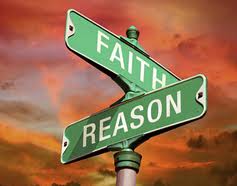There is a growing tendency among Latter-day Saint academics to talk about “bracketing” faith out of scholarship (although not everyone uses that term). While I grant that this method has certain benefits as a provisional mental or intellectual exercise, and I have gained some valuable insights both from works where such “bracketing” has been done and from engaging such exercises myself, I fear there are also corrosive effects that are not often recognized by its practitioners.
He goes on to outline two of these perils, and the post is definitely interesting and worth your time. But here’s the observation that struck me as the most interesting:
The second byproduct is that it creates what I call a “One Way Street,” between reason and revelation. Because faith is “bracketed,” i.e., blocked off from traveling with our reason into the realm of scholarship, faith and revelation have no influence on the conclusions reached. But these conclusions are still imported back into the practitioner’s faith. That is, they reshape and reform their faith in light of conclusions reached without faith.
I would add just one additional consideration. There is an underlying assumption that bracketing faith leads in some sense to an objective and/or neutral viewpoint. In principle, there is validity to this. If you’re going to have a Muslim, a Mormon, a Jew, a Catholic, and an Atheist all provide mutually accessible analyses, then a great deal of bracketing is necessary. However, in practice the objectivity obtained via bracketing is anything but. Instead of shooting for a minimalist and open-ended neutral territory, bracketing is susceptible to becoming little more than a thin veil for a suite of ideological assumptions that are just as robust as those underlying any faith tradition.
The secularism of Western intellectuals is emphatically not a mere Blank Slate. It is, instead, a collection of metaphysical commitments (e.g. materialist reductionism, scientism) paired with stark political postures (always left-leaning.) This means that bracketing is not only susceptible to the theoretical flaw Rappleye expounds, but in practice is even more susceptible to far more serious pitfalls.
This doesn’t mean there is no place for bracketing. A tolerant, pluralist society must leave room for bracketing not only within academia but in broader social conversation. But this should be genuine bracketing. Even if it is impossible to hit the target perfectly, we should still be aiming at a truly neutral standpoint.

I’m reasonably confident that this is a genuine problem, but I’m uncertain what specific steps are possible to address it. I also have some theoretical concerns about a genuine “view from nowhere”, but as an admittedly unreachable ideal, true neutrality seems valuable. But I don’t know how to bracket the assumption that material things exist or that science basically works without explicitly calling out some controversial alternatives for approval. Do you have thoughts?
Bracketing is a contextual exercise that, like medicine to use a simplified analogy, can have positive and negative side-effects depending on how it’s used. And although I agree when Neal observes that bracketing can have “corrosive effects,” I’m not as sure as he seems to be that “its practitioners” simply don’t recognize them. I think it’s also important to observe that not bracketing one’s faith commitments in certain circumstances can also have corrosive effects. Jesus’s instructions on “pearls before swine” come to mind, not necessarily as an insult to one’s audience but as a recognition that pigs would have no context or use for the pearls. What’s more, many LDS scholars frequently “bracket” their more academic-minded analyses/approaches/methods/conclusions in devotional settings, which is to say that bracketing isn’t something scholars do with regard to faith claims, but something religious people do with regard to scholarly claims depending on the context.